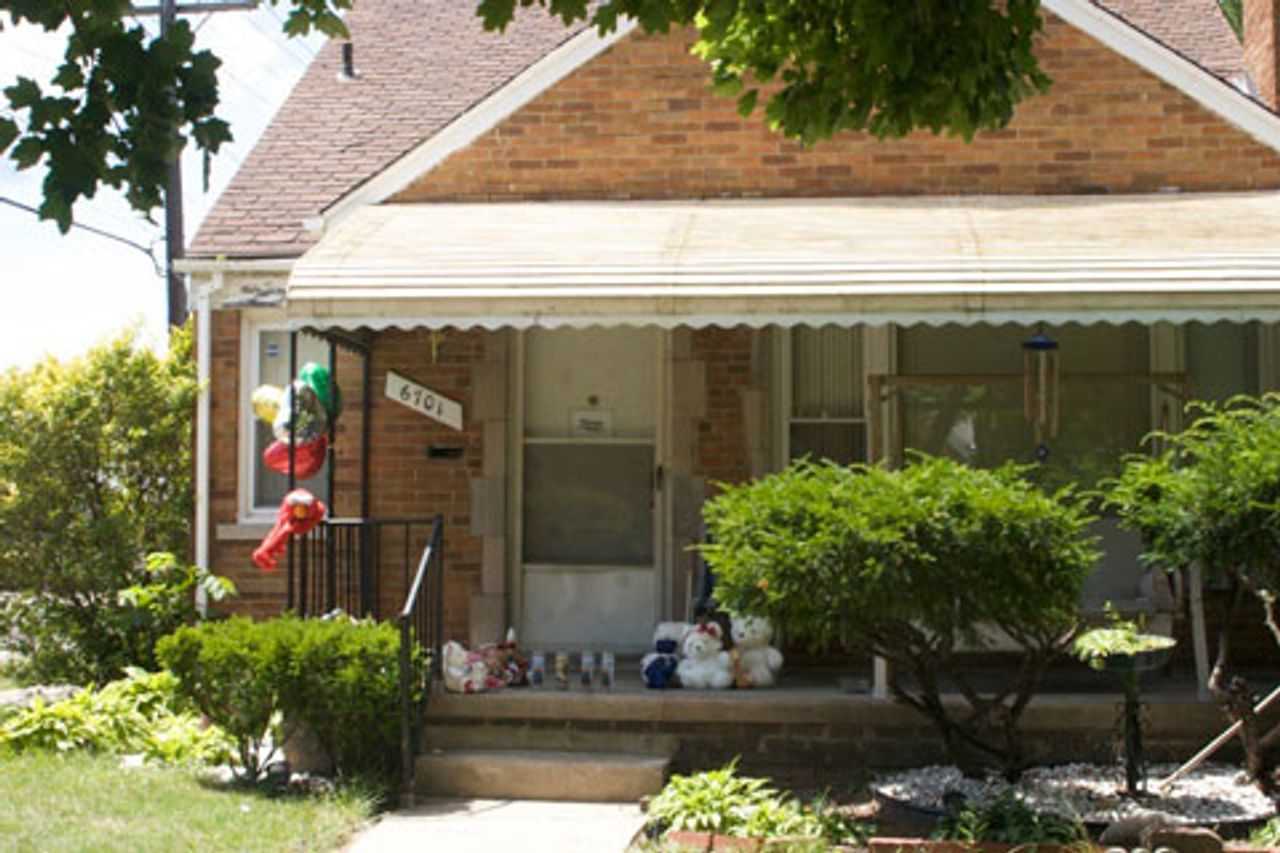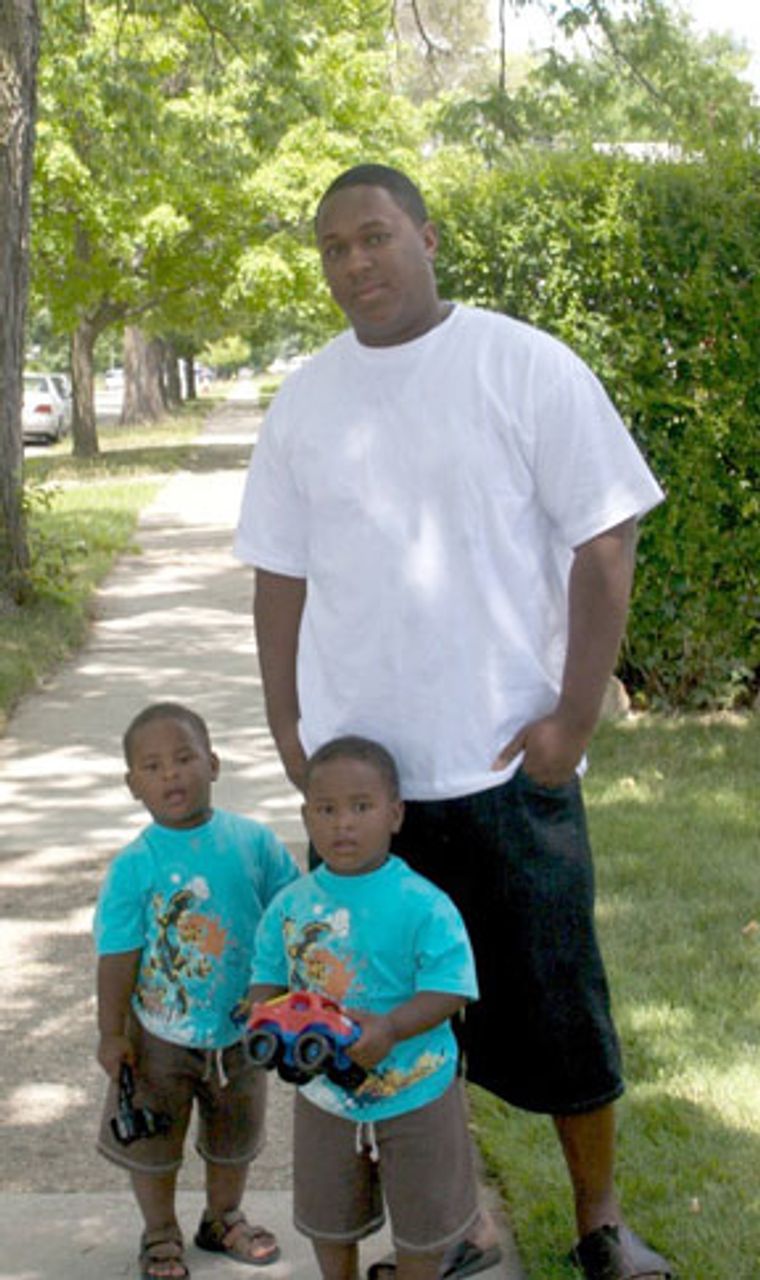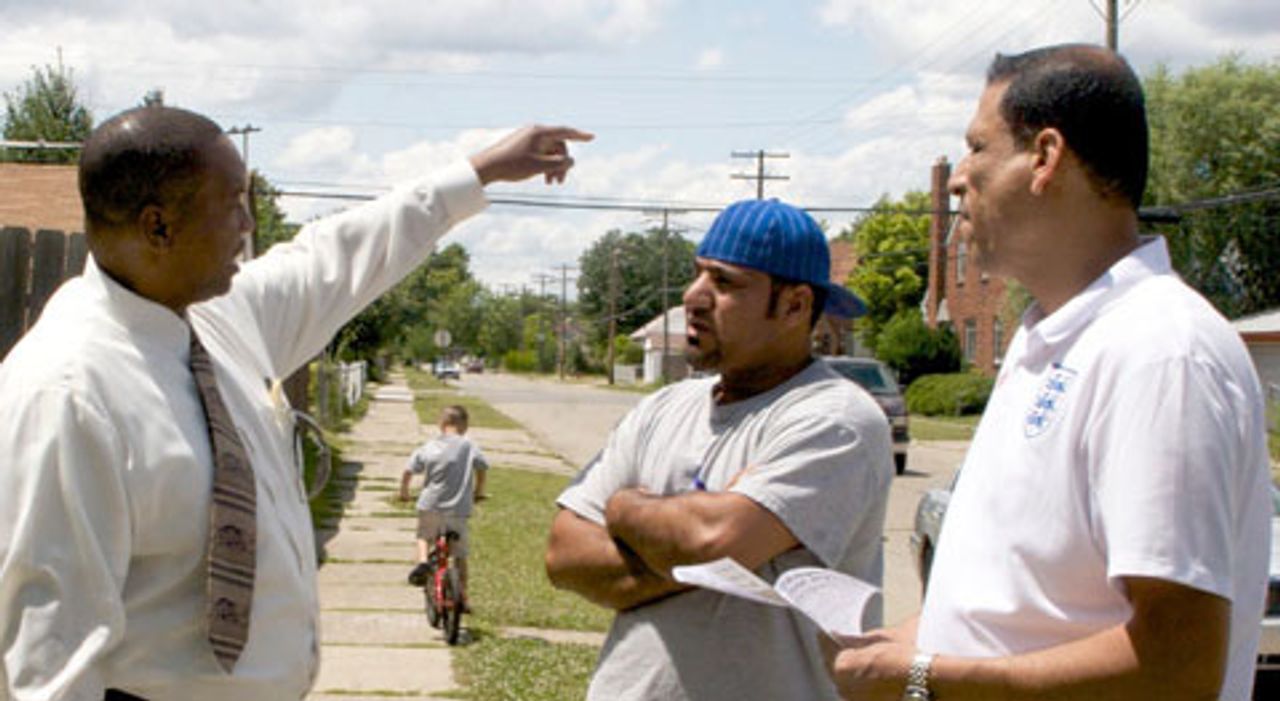A man and his three children all died tragically from carbon monoxide poisoning on Detroit's west side early Thursday morning. The poisonous gas came from a generator the family was using after the local electricity provider, DTE Energy, shut off service for non-payment.
Vaughn Reed, 46, borrowed a generator from New Providence Baptist Church where he worked as the head of security. Reed's wife, Marquetta Owens, and her son DeMonte had asthma and required the assistance of nebulizers to help them breathe. Because of the medical condition of Owens and her son, the household could not sustain even a relatively short duration without power.
 The Reed-Owens family home
The Reed-Owens family homeReed put the gas-powered generator in the basement and started running it at around 10 pm, according to the Detroit News. At 2 am he smelled the noxious fumes. “He went downstairs [to check on the generator], and never came back up,” Owens told the Detroit News. When she went down to check on him, she found him passed out on the basement floor.
Owens then returned upstairs to call for help, but she temporarily lost consciousness herself. Upon coming to, she crawled out of the house and drew the attention of a neighbor, who called the police.
“We saw her outside at about 3 am,” neighbor Frank Heleeji told World Socialist Web Site reporters. “The ambulances and everything were there by 3:30.”
Reed died from carbon monoxide poisoning, as did his 17-year-old daughter Mar'Keisha Reed, and Owens’ two sons: 12-year-old DeMarco Owens and 7-year-old DeMonte Owens.
Family and neighbors unanimously described the Reed-Owens family as generous and hard-working members of the community. “They were a nice family,” said Heleeji. “I knew them for four years and never had any problems with them. All the problems in this neighborhood, we never had any from them. He watched my house for me, I watched his.”
“I knew him well,” said another neighbor, Andrew Hairston. “We hung out. It’s sad.”
While the deaths are certainly tragic, they are not accidental. A string of entirely avoidable precipitating circumstances led up to the event.
Reed was delinquent on his electricity bill, although the exact sum is not entirely clear. DTE Energy claims Reed was several years in arrears, for a total of $7,700. A member of Reed's family, who asked to remain anonymous, told WSWS reporters she believes those figures to be erroneous.
“Vaughn was giving other people money for their bills,” she said. “Why would he let his fall that far behind? They threatened to shut my power off when I was $200 behind, and they are trying to say they let him fall $7,000 behind until they shut his power off.”
The conditions of economic hardship in which the Reed-Owens family found itself are the result of broader social conditions beyond their control. Reed was laid off in January from his job as a salesperson at auto parts supplier ITW Balance Engineering. His bankruptcy court proceedings had just been finalized the day his power was shut off. If this information had gotten to DTE Energy on time, the utility would have been legally obligated to forego shutting off his energy.
Auto suppliers, such as Reed's former employer, are laying-off workers in Detroit and throughout the country as the Big Three (GM, Ford and Chrysler) drastically curtail production to correspond to diminishing demand. The diminished demand, in turn, is the result of the “credit crunch” caused by the bursting of the financial bubble built over years by manic speculation on Wall Street.
The elimination of jobs throughout the auto industry is the result of very deliberate political decisions carried out by the Obama administration, and the Bush administration before it, on behalf of the ruling elite that they represent. Obama pushed GM and Chrysler through bankruptcy court not in order to protect jobs, but on the specific condition that the companies cut jobs, wages and benefits.
All these policies have resulted in a broad deterioration of living conditions in neighborhoods throughout the country, and Detroit in particular. The unemployment rate in Metro Detroit (including suburbs) is 16.3 percent and rising rapidly, while the rate in the city itself is over 25 percent.
The effects of these numbers have been strongly felt in the west side Detroit neighborhood in which the Reed-Owens’s deaths took place. Throughout the neighborhood one sees for-sale signs, boarded up windows and unmowed lawns indicating abandoned houses, graffiti, and garbage lining the streets.
D'Artagnan Collier, the Socialist Equality Party's candidate in the upcoming mayoral election, spoke to people in the community to find out their reaction to the deaths. Collier is opposed to all utility shutoffs.
“I have lived here for 11 years,” one worker, Hairston, said, “and it has changed a lot in that time. It’s wild. There are crack dealers and bad people all around. It used to be laid back, a good place to raise a family. Now all the stores are closed, people don't mow their lawns. A lot of houses are vacant, and people who shouldn't be there are staying in the abandoned houses. Just up the street there is a vacant house that people have moved into. They have no electricity or anything, but they are staying there.”
 Andrew Hairston and his two sons. He is visiting
Andrew Hairston and his two sons. He is visiting his mother, who lives across the street from
the Reed-Owens family.
"There is no help either,” Hairston added. “I got laid off one year ago. I used to work as a truck driver, now I can't find anything. I have been looking out anywhere in the state, and even out of state, and I can't find anything. I have three kids, and they [the government] won't even help me with daycare for them so I can look for a job. I just need a little help, then I can take care of myself, but I can't even get that.”
Heleeji and Ali were both also out of work. “I used to do carpeting,” said Heleeji. “Now I am not working. I can't find anything.” Ali worked as a shipping and receiving manager for years, and says he has been unemployed for months.
‘It is not right for them to shut off people’s utilities,” said Heleeji. “You see what happens? I am behind on my payments also. My cousin’s house is in foreclosure. We are all having problems right now.”
 D’Artagnan Collier Speaking to Frank Heleeji and Ali, the family’s next-door neighbors.
D’Artagnan Collier Speaking to Frank Heleeji and Ali, the family’s next-door neighbors.“I live just one block up from here,” said Ali, “and I am the only one left on the block. I used to have neighbors, and now every house is empty.”
